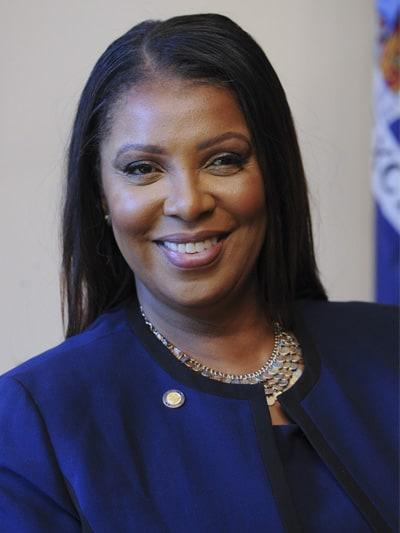New York AG Letitia James Takes Legal Stand Against Trump-Era VAWA Policy Changes
New York Attorney General Letitia James has initiated a legal challenge targeting the Justice Department’s modifications to the Violence Against Women Act (VAWA) implemented during the Trump administration. These alterations have sparked widespread concern among advocates and officials who argue that the changes significantly weaken protections for survivors of domestic and gender-based violence. This legal confrontation highlights the persistent friction between state authorities and federal policies regarding the enforcement and scope of VAWA, a cornerstone law aimed at combating violence against women nationwide.
Attorney General James Opposes Narrowing of VAWA Protections
Attorney General James has vocally criticized the Trump Justice Department’s recent revisions to VAWA enforcement, asserting that these changes erode critical safeguards for survivors. The revised rules reportedly constrict the definitions of domestic violence and sexual assault, reduce federal oversight, and impose stricter evidentiary requirements that could hinder survivors’ ability to obtain justice. James advocates for reinstating comprehensive enforcement measures that prioritize victim safety and uphold the civil rights advances achieved over decades.
Core Elements of AG James’ Legal Challenge
- Broadening the legal definitions of violence to encompass a wider range of abusive behaviors.
- Increasing federal funding and support for survivor-focused programs and law enforcement training.
- Eliminating restrictive evidentiary standards that exclude valid claims from consideration.
| Policy Aspect | Trump DOJ Revision | AG James’ Stance |
|---|---|---|
| Scope of Violence Definition | More limited | Expanded to include broader abuse types |
| Federal Oversight | Reduced involvement | Active and strengthened supervision |
| Support for Survivors | Funding cuts | Increased financial resources |
Analyzing the Impact of VAWA Guideline Revisions on Victim Advocacy and Law Enforcement
The legal community remains divided over the implications of the Trump-era VAWA guideline changes. Critics warn that narrowing definitions and tightening evidence rules could exclude many survivors, particularly those experiencing non-physical abuse, from receiving protection and justice. Conversely, some law enforcement officials argue that clearer evidentiary standards may improve prosecutorial effectiveness and reduce potential misuse of the law, emphasizing fairness for all parties involved.
Perspectives on the Revised VAWA Guidelines
- Concerns: Exclusion of certain abuse survivors due to narrower definitions.
- Law Enforcement View: Enhanced clarity in evidence requirements may aid case prosecution.
- Advocates’ Fears: Potential rollback of victim support services and protective orders.
- Legal Experts: Need to balance victim rights with due process for defendants.
| Area of Concern | Possible Consequences |
|---|---|
| Definition Breadth | May exclude emotional or psychological abuse cases |
| Evidentiary Requirements | Higher burden of proof for survivors |
| Law Enforcement Procedures | More stringent guidelines for case handling |
| Victim Services | Risk of diminished protective measures and resources |
Calls for Legislative Reforms to Reinforce and Expand VAWA Protections
In response to the controversial rule changes, advocates and legislators are urging Congress to enact laws that restore and enhance the original intent of VAWA. These efforts focus on reversing policies that have curtailed survivor protections and funding, emphasizing the importance of comprehensive support systems for victims of domestic violence and sexual assault.
Legislative Priorities Highlighted by Advocates
- Ensuring wider access to legal remedies and protective orders for survivors.
- Securing robust funding streams for shelters, counseling, and victim services.
- Strengthening protections for marginalized groups disproportionately affected by violence.
- Promoting coordinated efforts between federal agencies and local law enforcement to improve response effectiveness.
Without legislative intervention, experts warn that the weakened rules could lead to underreporting of abuse, reduced victim resources, and diminished deterrence against offenders, potentially reversing decades of progress.
| Provision | Trump DOJ Modification | Proposed Legislative Action |
|---|---|---|
| Funding for Shelters | Decreased allocations | Restore and increase funding levels |
| Immigrant Survivor Protections | Restricted visa eligibility | Expand access to protective visas |
| Data Collection | Reduced federal reporting requirements | Mandate comprehensive and transparent data gathering |
Strategic Recommendations for Policymakers to Strengthen Survivor Support Systems
To ensure effective protection and assistance for survivors, policymakers should adopt survivor-centered legislation that enhances legal safeguards and improves access to critical services. This includes increasing funding for crisis intervention, safe housing, and healthcare tailored to the unique needs of domestic violence and sexual assault survivors. Additionally, implementing trauma-informed training for law enforcement, judicial personnel, and service providers is essential to foster empathy and improve case outcomes.
Developing interagency collaboration frameworks is equally important to create seamless support networks connecting shelters, healthcare providers, victim advocates, and law enforcement. Embracing secure digital tools for reporting and evidence collection can expedite investigations while safeguarding survivor privacy. The table below outlines key policy priorities and their anticipated benefits:
| Focus Area | Policy Initiative | Projected Outcome |
|---|---|---|
| Funding | Boost federal and state grants for survivor programs | Expanded access to shelter, healthcare, and counseling |
| Training | Require trauma-informed education for all relevant personnel | Enhanced sensitivity and survivor engagement |
| Coordination | Implement interagency response protocols | Improved service delivery and reduced duplication |
| Technology | Adopt secure digital reporting and evidence management systems | Faster case processing with privacy protections |
- Refine legal definitions to close gaps that allow abuse to go unaddressed.
- Enhance enforcement accountability to ensure compliance with protective orders.
- Invest in community-based prevention initiatives to break cycles of violence.
Conclusion: The Future of VAWA Enforcement Hinges on Ongoing Legal and Legislative Battles
The dispute between Attorney General Letitia James and the Trump-era Justice Department over VAWA enforcement represents a pivotal moment in the evolution of protections for survivors of domestic violence. As courts deliberate on these contested policy changes, the outcome will likely influence how VAWA is implemented across the United States for years to come. Stakeholders from advocacy groups to law enforcement are closely monitoring developments, recognizing that the decisions made will shape the availability of legal recourse, support services, and safety measures for countless victims nationwide.













